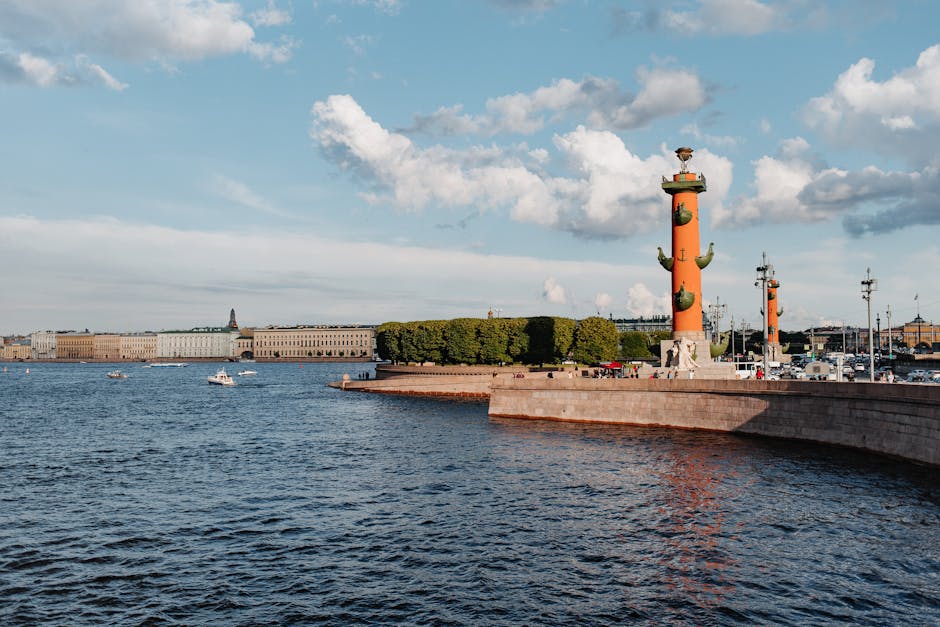Liverpool’s Port and AI: Revolutionising Maritime Logistics
Imagine a world where ships navigate themselves and cargo loads are a breeze. You’re witnessing the future unfold at Liverpool’s Port, where AI is transforming maritime logistics.
Dive into the cutting-edge world of predictive analytics and AI-driven supply chain optimisation that’s reshaping this historic port. You’ll see how smart technology is not just revolutionising operations but also setting a new standard for ports worldwide.
Welcome to the era of smart ports, where Liverpool leads the charge.
Key Takeaways
- Liverpool’s docklands have undergone a successful regeneration process, blending historical preservation with modern innovation.
- AI technology is transforming maritime operations in Liverpool’s port, with applications such as predictive analytics, autonomous vessels, and advanced monitoring systems.
- Predictive analytics is being used to optimise shipping operations by predicting maintenance needs, cargo volumes, and market changes.
- AI-driven supply chain optimisation is enhancing inventory management, demand forecasting, shipping routes, and decision-making, leading to cost savings and reduced environmental impact.
Historical Context of Liverpool’s Port

You’ll find Liverpool’s maritime heritage at its historic docklands, a once-thriving hub of global trade and the cornerstone of the city’s economic prowess. The dockside regeneration, an intricate process aimed at revitalising Liverpool’s waterfront, exemplifies a strategic blend of historical preservation and modern innovation. This systematic rejuvenation hasn’t only conserved the city’s rich maritime legacy but also catalysed a renaissance of its urban fabric.
Analysing the docklands’ transformation reveals a meticulous approach to urban planning. The infusion of contemporary amenities into the historical landscape necessitated a rigorous assessment of architectural integrity, ensuring that new developments harmonised with the traditional maritime aesthetic. The technical intricacies of such regeneration demand an interdisciplinary approach, integrating urban design principles with economic and environmental considerations.
The preservation of Liverpool’s maritime heritage within the dockside regeneration framework serves as an archetype for balancing historical authenticity with progressive urban development. It underscores the technical feasibility of repurposing maritime infrastructure to foster economic growth, while also safeguarding cultural heritage—a testament to Liverpool’s commitment to maintaining its historical narrative in the face of contemporary challenges.
AI in Maritime Operations

As you explore Liverpool’s port, you’ll discover that artificial intelligence is transforming maritime operations, streamlining processes from shipping logistics to predictive maintenance. The integration of AI into the maritime sector isn’t just a futuristic concept; it’s a current reality that’s enhancing efficiency and safety.
-
Predictive Analytics: AI maintenance systems analyse massive datasets, predicting equipment failures before they occur, thereby reducing downtime and maintenance costs.
-
Autonomous Vessels: AI-driven technology is at the helm of developing autonomous vessels, which promise to revolutionise shipping by optimising routes, improving safety, and reducing human error.
-
Smart Logistics: AI algorithms process real-time data to streamline cargo handling, leading to faster turnaround times and more efficient supply chain management.
-
Security and Surveillance: Advanced AI-powered monitoring systems detect and prevent unauthorised activities, ensuring the security of the port and its assets.
These applications of AI aren’t just theoretical; they’re practical tools currently in use, ensuring Liverpool’s port remains at the forefront of maritime innovation. With each advancement, the port’s operations become more robust and resilient, setting a benchmark for ports worldwide to follow suit in embracing the power of artificial intelligence.
Predictive Analytics for Shipping

Harnessing predictive analytics, Liverpool’s port significantly reduces operational risks by anticipating maintenance needs and optimising shipping schedules. By analysing historical data and real-time inputs, you’ve got a robust system that not only flags potential equipment failures before they occur but also tailors vessel performance parameters for maximal efficiency. This foresight minimises downtime and ensures that vessels are in peak condition, navigating the seas with precision and reliability.
Diving deeper into cargo forecasting, you leverage intricate algorithms that evaluate patterns in global trade flows, consumer demand, and seasonal variations. This allows you to predict cargo volumes with remarkable accuracy, effectively managing berth allocations and labour resources. The dynamic nature of predictive analytics empowers you to respond proactively to market changes, rather than reactively, giving you a competitive edge in the logistics arena.
The technical prowess of predictive models is transforming maritime logistics into a realm where every decision is data-driven. You’re not just moving goods; you’re strategically alining every piece of the logistical puzzle to ensure seamless operations. With this level of control, you’re setting the stage for the next leap in efficiency: AI-driven supply chain optimisation.
AI-Driven Supply Chain Optimisation

While predictive analytics positions you at the forefront of maritime logistics, it’s AI-driven supply chain optimisation that truly propels your operations to unprecedented levels of efficiency. This is where artificial intelligence becomes indispensable in refining the cogs of your supply chain, including Inventory Management and Demand Forecasting. By harnessing AI, you’re not just reacting to the market; you’re anticipating it.
Here’s how AI transforms your supply chain:
-
Real-time Inventory Management: AI algorithms analyse stock levels and predict replenishment needs, reducing overstock and stockouts.
-
Enhanced Demand Forecasting: Machine learning models consider historical data and emerging trends to forecast demand with higher accuracy.
-
Route Optimisation: AI optimises shipping routes and schedules to minimise delays and reduce fuel consumption.
-
Automated Decision-Making: AI provides actionable insights that automate and improve decision-making processes in logistics operations.
This technical orchestration ensures that the right products are in the right place at the right time, while also minimising costs and environmental impact. By embracing AI-driven optimisation, you maintain a competitive edge in a rapidly evolving industry.
As you continue to integrate AI into your supply chain, you’re laying the groundwork for the future of smart ports, a topic we’ll delve into next.
The Future of Smart Ports

You’re standing at the brink of innovation with smart ports, where AI not only streamlines operations but also redefines the entire landscape of maritime logistics. The concept of Digital Twinning is pivotal in this transformation.
By creating a virtual replica of the physical port environment, stakeholders can simulate, analyse, and optimise port operations with unprecedented precision. This dynamic tool allows for scenario testing without risking actual assets, enabling data-driven decision-making and predictive maintenance, thus avoiding costly downtime.
Now, consider Autonomous Vessels, which are set to become integral to smart port ecosystems. These self-navigating ships can communicate with port infrastructure, synchronise with loading and unloading schedules, and reduce the need for manual intervention. This development is poised to significantly increase efficiency and safety, while also mitigating human error.
However, integrating autonomous vessels requires advanced navigational systems, robust cybersecurity measures, and regulatory frameworks that ensure seamless operation within the global supply chain.
As you delve deeper into the future of smart ports, it’s clear that the synergy between Digital Twinning and Autonomous Vessels won’t only enhance operational efficiency but will also lead to a paradigm shift in maritime logistics, setting a new benchmark for global trade facilitation.
Frequently Asked Questions
How Does the Integration of AI Into Liverpool’s Port Operations Impact Local Employment and Job Roles Within the Maritime Sector?
You’ll find AI integration reshapes job roles, demanding workforce adaptation and retraining to maintain employment within the maritime sector, as it shifts towards more technical, analytical skill requirements.
What Measures Are Being Implemented to Ensure Cybersecurity in the AI Systems at Liverpool’s Port?
You’re facing a digital battleground, yet Liverpool’s port fortifies its AI with robust encryption protocols and prepares for cyberattack scenarios, ensuring a shielded, seamless operation in the face of looming virtual threats.
How Does the Use of AI in Maritime Logistics at Liverpool’s Port Aline With Environmental SustAInability and the Reduction of Carbon Emissions?
You’re witnessing AI efficiency intersect with green technology, as it optimises routes and reduces fuel consumption, directly alining maritime logistics with environmental sustainability and cutting down on carbon emissions.
Are There Any Educational or TrAIning Programmes AvAIlable for the Local Community to Learn About AI and Its Applications in Maritime Logistics?
Wondering how to stay abreast of AI in logistics? Community workshops and a comprehensive AI curriculum offer you hands-on experience, merging technical skills with practical applications to elevate your expertise in this field.
How Does Liverpool’s Port Handle the Ethical Implications of Using AI, Such as Data Privacy Concerns and the Potential for Algorithmic Bias?
You’ll find that ethical oversight ensures AI transparency, addressing data privacy and algorithmic bias. Through rigorous protocols, they mitigate ethical risks, maintaining a balance between innovation and individual rights protection.
Conclusion
Imagine standing on the bustling docks of Liverpool’s historic port, where the fusion of tradition and technology is palpable. As AI reshapes maritime logistics, predictive analytics and supply chain optimisation aren’t merely buzzwords—they’re the new captains steering the industry forward.
With smart ports on the horizon, the promise of streamlined, efficient, and almost clairvoyant operations dangles before us. The question lingers: How will this AI revolution transform Liverpool’s port—and others worldwide—next?
The answer lies just over the horizon.
Contact us to discuss our services now!


